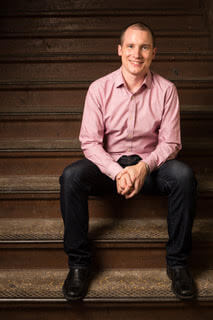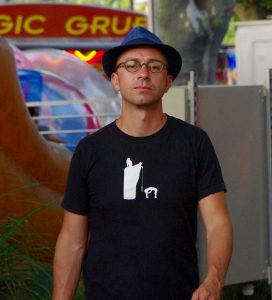Writing the Midwest: On writing different experiences from your own
“Writing the Midwest” is a recurring series featuring writing advice from today’s most prolific authors. Whether it’s dealing with writer’s block, knowing when a piece is finished, or how and where to find inspiration, we’re delighted to present to you the very best guidance to help you and your writing. You can find links to the authors’ full interviews below.
On writing different experiences from your own:  Tom McAllister: Once I found the rhythms of [How to Be Safe main character] Anna’s voice, I still resisted it, because I was very afraid of totally screwing it up. I’ve read and loved many books by and about women, but wasn’t sure I could do it myself. When I’m deep into a project, I talk to my wife about it a lot, and in this case, I often ran scenarios by her to understand how she might perceive a situation differently than I would. When we walk into a crowded room for a party, what things does she notice right away (especially things that I might miss or take for granted)? But also, the most important thing was Twitter, and social media in general. Just logging in every day, following smart and funny women, resisting the dumb urge to constantly respond to them, and just listening. Learning about the various indignities most women face day to day. Especially listening when they shared stories of male writers totally misunderstanding the internal lives of women. Tom McAllister: Once I found the rhythms of [How to Be Safe main character] Anna’s voice, I still resisted it, because I was very afraid of totally screwing it up. I’ve read and loved many books by and about women, but wasn’t sure I could do it myself. When I’m deep into a project, I talk to my wife about it a lot, and in this case, I often ran scenarios by her to understand how she might perceive a situation differently than I would. When we walk into a crowded room for a party, what things does she notice right away (especially things that I might miss or take for granted)? But also, the most important thing was Twitter, and social media in general. Just logging in every day, following smart and funny women, resisting the dumb urge to constantly respond to them, and just listening. Learning about the various indignities most women face day to day. Especially listening when they shared stories of male writers totally misunderstanding the internal lives of women. |
  Laura Hulthen Thomas: I think it’s dangerous for any writer to be afraid to write about something they haven’t personally experienced or known. We wouldn’t have fiction, journalism, poetry, or nonfiction without writers figuring stuff out, inhabiting other perspectives, in their mission to bring full stories to the page. Sometimes writers get the facts wrong, or don’t capture an experience authentically; sometimes tone undermines integrity, and intent. That’s the breaks—writers make mistakes, and some published writing is in poor taste, whether intentionally or not. Laura Hulthen Thomas: I think it’s dangerous for any writer to be afraid to write about something they haven’t personally experienced or known. We wouldn’t have fiction, journalism, poetry, or nonfiction without writers figuring stuff out, inhabiting other perspectives, in their mission to bring full stories to the page. Sometimes writers get the facts wrong, or don’t capture an experience authentically; sometimes tone undermines integrity, and intent. That’s the breaks—writers make mistakes, and some published writing is in poor taste, whether intentionally or not. |
  Jay Baron Nicorvo: My process for this is simple if not easy: read everything. I immerse myself in a subject until I lose myself in it, literally. You’ve got to reach the saturation point where you’re drowning in primary source material. Then you write your way to the surface, and you do that partly by working hard against stereotype. Once you’ve reached the surface, once you’ve polished that surface to a shine and are reasonably sure that beneath the surface lies some significant depth, then seek out a reader who’s experienced what you’ve written about. She’ll call you on your bullshit, and you revise with her opinions in mind. Jay Baron Nicorvo: My process for this is simple if not easy: read everything. I immerse myself in a subject until I lose myself in it, literally. You’ve got to reach the saturation point where you’re drowning in primary source material. Then you write your way to the surface, and you do that partly by working hard against stereotype. Once you’ve reached the surface, once you’ve polished that surface to a shine and are reasonably sure that beneath the surface lies some significant depth, then seek out a reader who’s experienced what you’ve written about. She’ll call you on your bullshit, and you revise with her opinions in mind. |
   |






